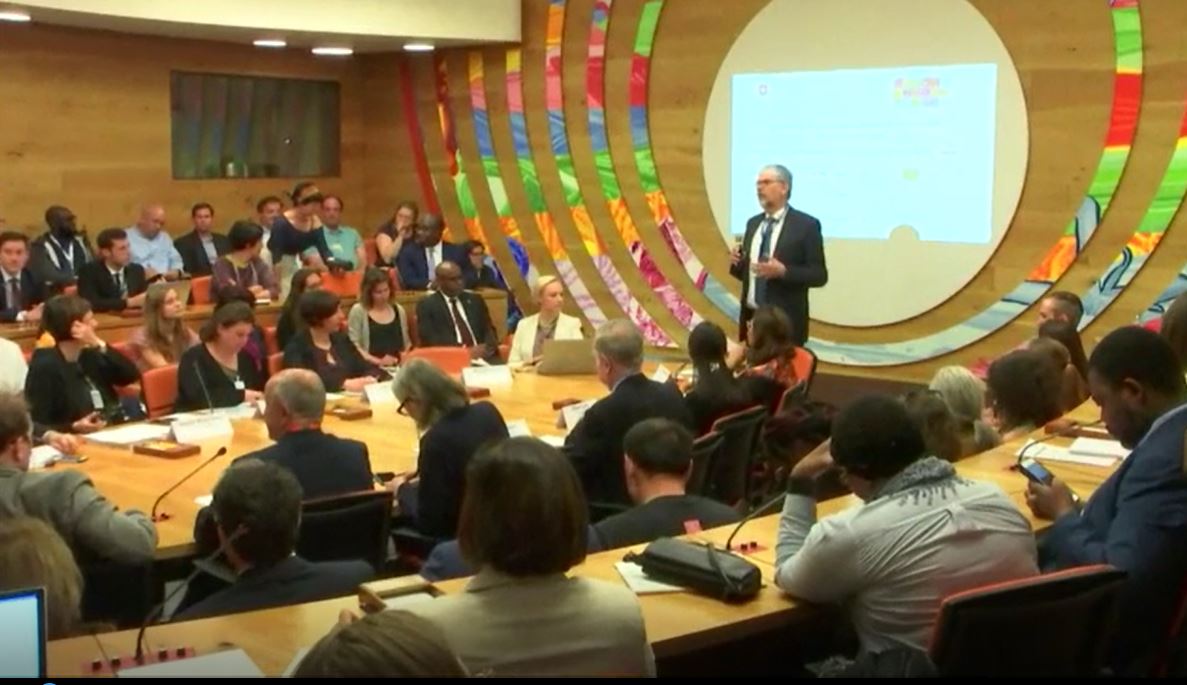On April 25th, the WFO Head of Policy Development, Luisa Volpe, joined the event “Agroecology as a means to achieve the Sustainable Development Goals” co-organized by Swiss FAO National Committee, FAO and Swiss Permanent Representation.
Speaking from the perspective of a farmers’ organisation, Luisa Volpe reminded the audience that there are too many definitions, acronyms, reports on different topics related to agriculture that don’t even reach the farmers. Most of the farmers probably don’t know what agroecology and SDGs are. They work in the fields every day, trying to produce and increase their income and livelihoods, facing a changing climate and its disruptive effects that they need to mitigate and adapt to in order to carry on their daily activity of producing food for everyone.
WFO supports the idea of sustainable agriculture practices, ways of producing food that are sustainable according to the three pillars of sustainability: environmental (to reduce GHG emissions, increase resilience, adapt to and mitigate climate change, preserve the ecosystem and biodiversity), social (there is no “one-size-fits-all solution”, sustainable development cannot be achieved without respecting and preserving local communities and their traditions and cultures), economic (agriculture is an economic sector, first source of income of many Countries especially in the South. It is a job for the farmers who produce food and not only want to produce it for themselves and their families but also access the markets).
Agroecology should be considered as one among the other approaches that can lead to the implementation of the SDGs by making agriculture more sustainable, together with all the other sustainable practices that farmers are already putting in place around the world to produce food.
Farmers should be more engaged in this kind of debates, at policy and research level, as they have their expertise on climate change adaptation and mitigation that they could share and that should be considered by policy makers, governments, agencies, investors, researchers. Farmers should no longer be considered as a target only but also as partners.
More coherence should be applied in the global collective effort of achieving Sustainable Development. Multi-stakeholder initiatives and partnerships should be strengthened to foster integrated and multi-sectoral approaches to Sustainable Development by involving different actors, building trust, focusing on common ground rather than on differences only and actively engaging farmers.
In this regard, the event was a great occasion to present “The Climakers. Farmers Driven Climate Change Agenda”, the multi-stakeholder initiative conceived by WFO where farmers lead an alliance that, by gathering farmers from all the regions of the world with other actors, aims at given farmers a leading role in the global political processes on climate change and agriculture by bringing forward and agenda based on the best practices that farmers are already implementing as practical solutions to climate change mitigation and adaptation.
